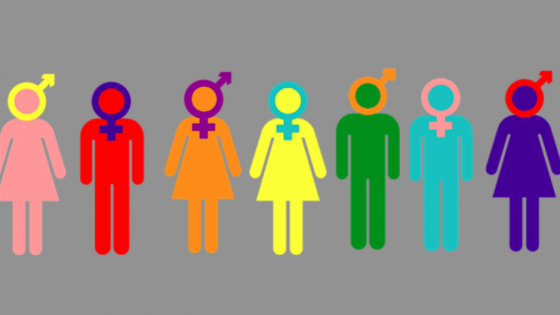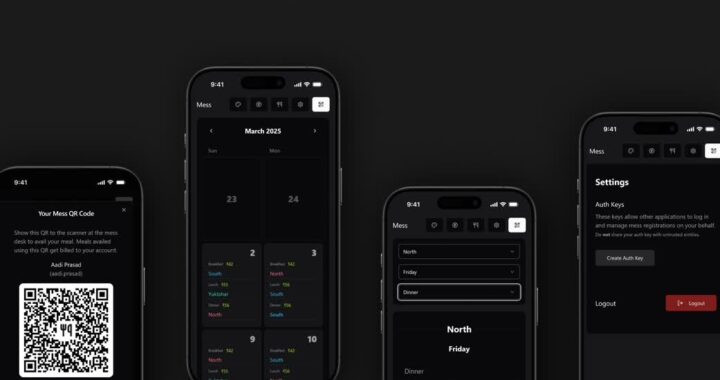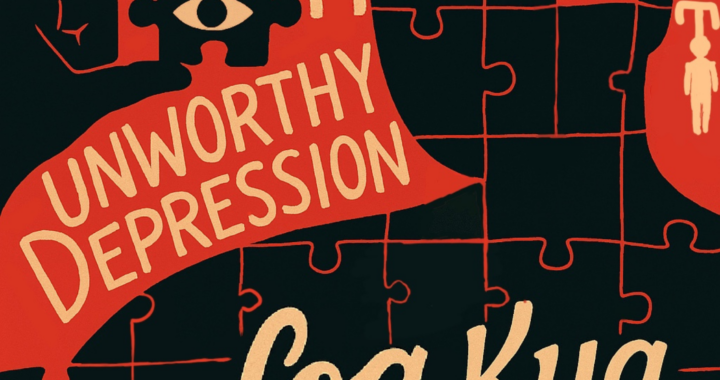Gender Awareness

The campus seems and claims to be a welcoming environment for all kinds of students. However, many incidents have taken place in the recent past that show otherwise, especially with respect to the campus as a whole being sensitive about the issue of gender.
The institute has a Gender Sensitisation Committee and a Gender Grievance Committee, consisting of staff members who can be approached in case of any incident related to gender issues. The Gender Sensitisation Committee also holds a two-day workshop every year on gender and related subjects, which is open to all students, as well as conducting smaller discussion sessions during the UG1 Induction programme.
However, not many students feel comfortable approaching the members of these committees when they face any such problem, and some are unaware that these committees exist on campus. Many others also consider these problems to be normal, or not worth going through the hassle of reporting to any authority figures.
The gender workshops, especially the ones conducted during the UG1 induction do not seem to hold much interest among the students either, with only a few of those who attend interested in the topics that are discussed. Among those who did participate, some students agreed that they feel uncomfortable around people of the opposite gender. Comments such as male students saying that they would be “uncomfortable with lesbians” were made, which also shows a lack of sensitivity towards their peers.
A fair number of the female students also say that they felt uncomfortable when they were [hit on] by some of the male students; however, they brush it off, consider it to not be a big issue, or are scared of angering their seniors, since this often happens in the form of a senior [hitting on] a person of a junior batch. There have also been incidents where girls have been forced to write or say that a particular male senior is the best looking, to the point that they were extremely uncomfortable with it. Some girls have also been bullied for their appearance by the male seniors and told that they should look up to other ‘prettier’ girls to improve their appearance in a certain way. Girls have also sometimes mentioned that some of the guards make them uncomfortable or leer at them, especially if they are passing by later in the night, or wearing shorter clothing. There always seem to be guards positioned in front of the NBH/ New Parijat entrance at night, and some of the girls find their staring making them uneasy.
All of these incidents are very rarely reported to the GGC.
This ties into the issue of ragging, which is most likely not based on gender. However, usually, female students are ragged much less than male students. A very standard form of ragging, however, is asking or forcing the junior to reveal a list of their crushes, following which the students who are on the aforementioned list may be teased or harassed. Another common thing is for the student to be told to propose to someone of the opposite gender, including seniors, or people from their batch they may not even know. Since some of the students are from schools or institutions where they have not had as much contact with the people of the opposite gender, this makes them even more uncomfortable – instead of bridging the gap, as some claim it does.
Often the male students may be facing some issues related to their mental health because of ragging or the stress of academics. While the institute has a system in place including mental health leave and counsellors on campus, boys seem to get much less support overall from their peers than girls, since it is assumed that they are supposed to be emotionally stronger, and not break down as often. This is not usually regarded as an issue either, and this is not only the case in IIIT.
As most students know, there is an ironically formed group called Bajrang Dal on campus, which satirically intends to ‘preserve the purity of our culture’. This group consists of students from all batches, almost all of whom join for the sake of the laughs. However, recently, some of the members seem to have taken the purpose of the group literally. Couples on campus have been threatened that they will be hit with stones if found together during Valentine’s day, and meetings have been held in the rooms of the members of this group to ‘plan and execute’ the same. They also made somewhat derogatory or mocking posters to put in Bakul Nivas about the protesters during the cross-entry protest that took place recently. Even though most of the members are not part of these activities, the strength of the ‘non-serious’ members seems to bolster the courage of the ‘serious’ members to inflict this kind of moral policing on other students.
Another forum that breeds a broader gap between people of both genders is the IIITH confessions Facebook page. The page is also meant to be ironic. However, the anonymity offered makes it the ideal place for people to express their sometimes-harmful opinions about others. Often, a significant feature of the confessions is the confessor saying they are not comfortable with talking to people of the other gender. A lot of the confessions lead to the (suspected) person for whom the confession is written (and generally, it is written by this person’s friends to embarrass them), to be teased or called out for ‘scoring’ a partner. Often, certain people’s characteristics/choices are also made fun of in fake confessions. It becomes an excuse for the students submitting the confessions to hide behind a mask and mock some people of the other gender, by either outright mocking them, fake ‘confessing’ to them, or pretending to be them (for example, there are more confessions for UG1 ‘females’ each year, than there are females in that batch). On a similar note of anonymity, the cross-entry protest was organised recently, following which, a form was set up, and a lot of the counterpoints given for cross entry revolved around people not feeling comfortable enough around people of the other gender. Also, some of the responses received on the form clearly showed that some students did not have any respect or consideration for the people of the other gender.
This issue is not just restricted to the students, as certain staff members have also been seen making comments such as ‘girls should not wear shorts,’ or asking if a male student wanted to rape someone. Certain male students have also been asked if they are a girl, by another member of the staff, under a specific circumstance.
These instances clearly show that despite the institute’s efforts, there is a fair amount of insensitivity still going around, among both the students and a small portion of the staff. Given the large number of students and the skewed gender ratio, along with the students’ apparent unwillingness to attend or take part in any events to discuss such issues, it seems as though this will be a problem that is here to stay.


 Have you tried turning the mess off and on again?
Have you tried turning the mess off and on again?  Vipul Kedia on building Felicity | The story of how it all began…
Vipul Kedia on building Felicity | The story of how it all began…  Qu’ils mangent de la grenouille! (Let Them Eat Frogs!)
Qu’ils mangent de la grenouille! (Let Them Eat Frogs!)  Tale of Two Cheenties
Tale of Two Cheenties  Peace of mind.
Peace of mind.  Log Kya Kahenge?
Log Kya Kahenge?  Can you hear the music?
Can you hear the music?
1 thought on “Gender Awareness”
Comments are closed.